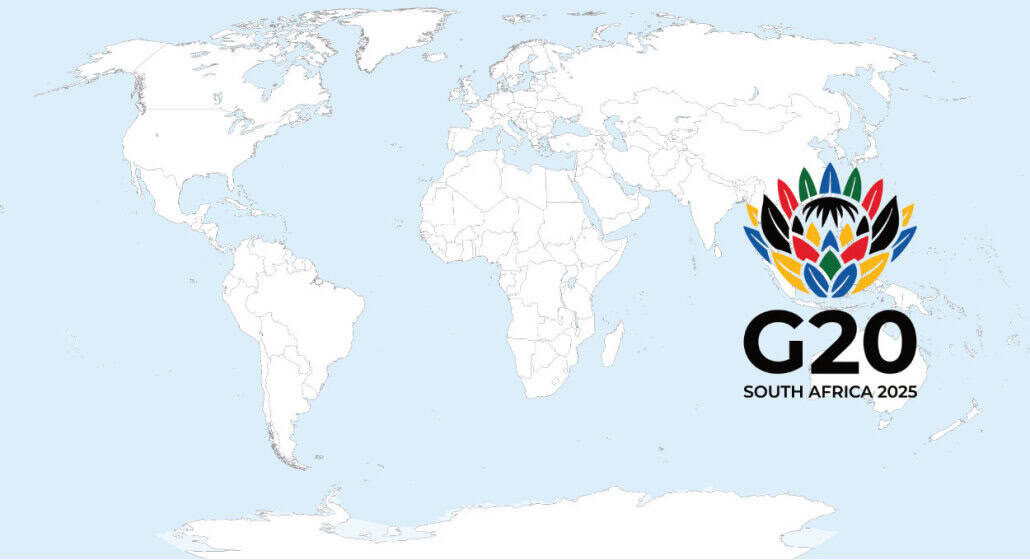South Africa currently holds the G20 presidency, in a first for the African continent. Its term runs from 1 December 2024 to 30 November 2025 – coming to an end just five years before the deadline of the UN’s 2030 agenda for sustainable development, which encompasses the 17 sustainable development goals (SDGs).
The country has chosen, as its theme for this year’s presidency, the motto of Solidarity, Equality, Sustainability. It will use the opportunity, says the Department of International Relations and Cooperation (Dirco), to advance the priorities of the AU’s Agenda 2063, with a particular focus on the third of seven overarching aspirations, namely An Africa of Good Governance, Democracy, Respect for Human Rights, Justice, and the Rule of Law. This corresponds to SDG16, which aims to promote peaceful and inclusive societies for sustainable development, provide access to justice for all, and build effective, accountable, and inclusive institutions at all levels.
Dirco minister Ronald Lamola, speaking in Johannesburg in December 2024 at the first G20 Sherpas meeting under South Africa’s presidency, said the theme expresses the country’s aim to “harness global will and capabilities to confront the enormous challenges the world is facing”.
Also in December, Special Investigating Unit (SIU) head Advocate Andy Mothibi led a delegation to the G20 Anti-Corruption Working Group (ACWG) consultative meeting, which took place in Harare, Zimbabwe. The ACWG falls under the Sherpa track, which consists of personal representatives of G20 leaders. During the year, these representatives oversee negotiations and discuss and finalise the points that shape the agenda for the annual G20 summit.
The Department of Public Service and Administration (DPSA) is the lead department in terms of South Africa’s anti-corruption agenda during its G20 presidency. The department will work closely with Dirco and the SIU during this period.
South Africa’s presidency underscores the country’s commitment to advancing the global fight against corruption and promoting good governance, said the DPSA.
Anti-corruption focus
South Africa’s anti-corruption work during its presidency will be guided by the G20 ACWG Action Plan 2025-2027, which itself uses the relevant statements from the St. Petersburg Strategic Framework of 2013 as the foundation for its work.
There are four key priorities identified:
- Strengthen the public sector by promoting transparency, integrity, and accountability.
- Increase efficiency of asset recovery measures.
- Enhance and mobilise the inclusive participation of the public sector, private sector, civil society, and academia to prevent and combat corruption.
- Enhance whistle-blower protection mechanisms.
Priority one deliverables are:
- A compendium of good practices in promoting a transparent, ethical, and accountable public sector.
- Ministerial declaration.
Priority two deliverables are:
- High-level principles on the management of seized and confiscated assets.
- Follow-up report on the impact of technical assistance support by G20 ACWG countries.
- Side event on efficiency of asset recovery measures.
Priority three deliverables are:
- A compendium of good practices on the role of multi-stakeholders in preventing and combating corruption.
- Side event on the role of the public sector, private sector, civil society, and academia in preventing and combating corruption.
Priority four deliverables are:
- Accountability report with a focus on effective protection of whistle-blowers.
- Side event on effective whistle-blower protection mechanisms.
“The outcomes of the G20 ACWG discussions in 2025 will be pivotal in shaping a unified and robust global response to corruption while advancing transparency, accountability, and good governance on the African continent and beyond,” said the DPSA.

